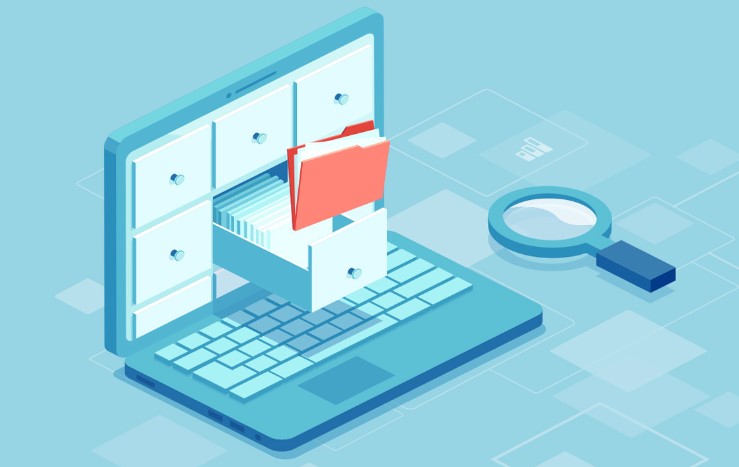Whether it is work or personal life, these days, life can’t be imagined without a computer. Our society heavily relies on these machines for some time now and things aren’t going to change in the future. In fact, we’re going to rely on computers more than ever in the coming decades. You can see this by noticing how many of us use smartphones, tablets, laptops, and PCs daily. They are essential parts of our lives now, and we rely on them in so many domains. One of the biggest departments that we love to have computers around is memory.
We can store so much on our computers today, that it is hard to imagine how far we’ve come as a society. It’s possible to store images, documents of all sorts, and various other files on our computers. The memory these machines hold can be seen almost as unlimited. All that is left is to sort our files in the right order so that they can be accessed with ease when needed.
So, in case you’re using a computer that’s operating on Windows, as many of us do, you should get yourself a file organizer for Windows the likes of which you can find if you visit this site. Even with that kind of help, you shouldn’t skip on the effective file organizer tips for Windows users we have below. Check them out.
1. Don’t Save Everything

Let’s start with the basics. Once we gained access to almost unlimited memory we became greedy. We started saving everything like we’re a hamster or a squirrel munching on nuts. When it comes to the organization of your files, it is easier to do it if you haven’t saved every little thing tied to your work or personal life. The more unnecessary files you have the harder the job gets. You need to have a proper selection. Whether it is personal life or work files you only need to save the vital parts. With files organization, relevancy matters. Organizing a bunch of irrelevant files is vain work either way. To be able to properly store your files and have instant access to everything important you need to limit the amount of data saved.
2. Take Care of Folder and Files Nomenclature
Don’t skip this part. Do you know those people who save all of their files on the desktop? Don’t be one of those people. Instead, put everything in folders and subfolders. Take good care of naming everything. File 001 is not a real name on its own. But, if it is part of a rightly named folder and subfolder you can immediately know what it means and what document we are talking about. So, it is vital that you take good care of naming your folders and subfolders. Also, you must stick to one way of giving names to your data. Nomenclature is important when it comes to saving files. Create a method of keeping your files safe by properly naming them.
3. Keep Personal Files Away From Business Ones

Does this even need to be mentioned? The answer is yes. It is easy to cross this border on your personal computer or laptop. But, the two things need to be separated. Keep one thing on one side, and the other on another. You can even skip the part of folders and subfolders and keep personal data on one part of your hard disk and your work on another. Furthermore, you need to have a clear view of each of these files. So, ensuring that they’re not mixed will be of great help in your work endeavors.
4. Prioritize
When it comes to files you need to sort them through priority. This is how that’s done. Files come in all sorts of types. You need to sort them the right way. Some files need to have priority and it is given to those that you’ll frequently use. Work files that you’re going to use each day need to be at the top of your access list. If we’re talking about photos from your nephew’s wedding, well you don’t need to view those every day, and you can keep them in a less important folder. So, ensure that you always have your eyes on priority files, and you’ll achieve this by sorting them not only by date and name but by priority too.
5. Rely on Shortcuts
You’re not using Windows the right way if you haven’t learned a few shortcuts. When it comes to operating your files, shortcuts are an essential part of your daily life. To have faster and safer access to your data you need a shortcut to accessing your folders and subfolders. What you also need to take care of is that you leave your important shortcuts in visible places on your computer. They’re usually left on the desktop. While shortcuts are a great way of fully accessing your files you need to be careful not to create too many of them as it can create confusion. Prioritizing with shortcuts matters too.
6. Backup Everything

No file is safe forever. That’s a well-known fact. You can either encounter a malfunction, a hacker attack or a simple human mistake. All of it can lead to file loss. To avoid this from happening you need to back up your data regularly. Today, it is vital that you have everything backed up. Your data can be lost in an instant, and it’s better to be safe than sorry. The best part is that today, you can store your files in the cloud or online in various sorts of capacities.
7. Do Regular Cleanups
In addition to the possibility of having your files lost, what’s worse they can get misplaced. The easiest way to have your files lost is to have them surrounded by trash. This is why you need to clean your folders and subfolders regularly. Back up the important parts and remove the trash. This will allow you easier access to everything you need, while it will save you time by avoiding accessing less important and unnecessary files. This action needs to be performed quite regularly as it will make your work and life much easier.

